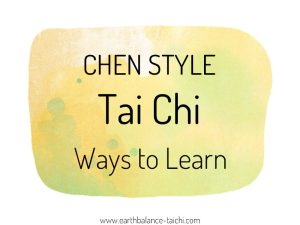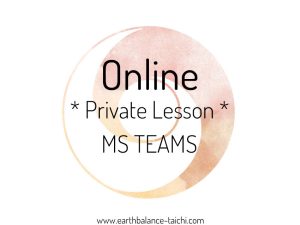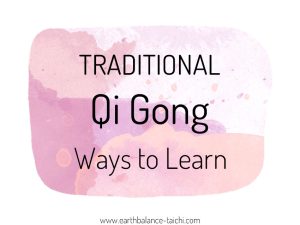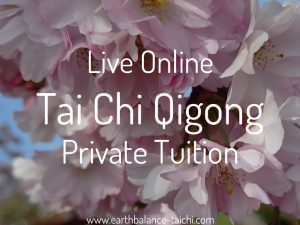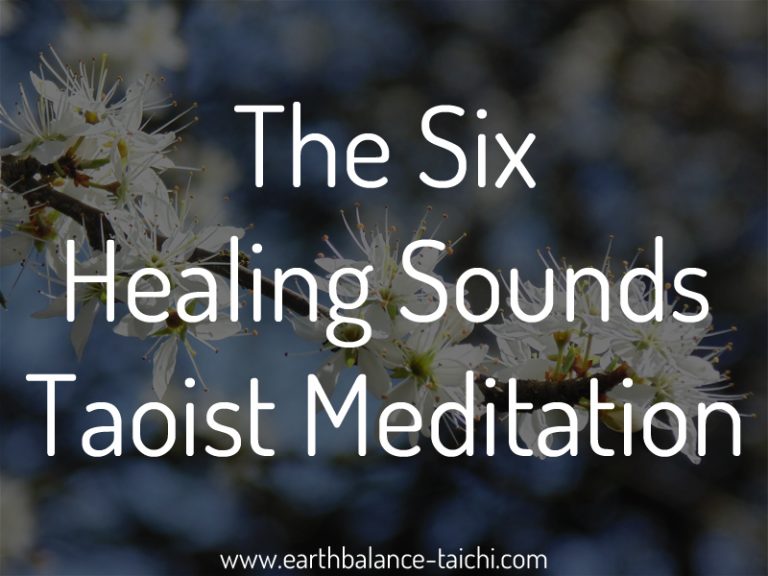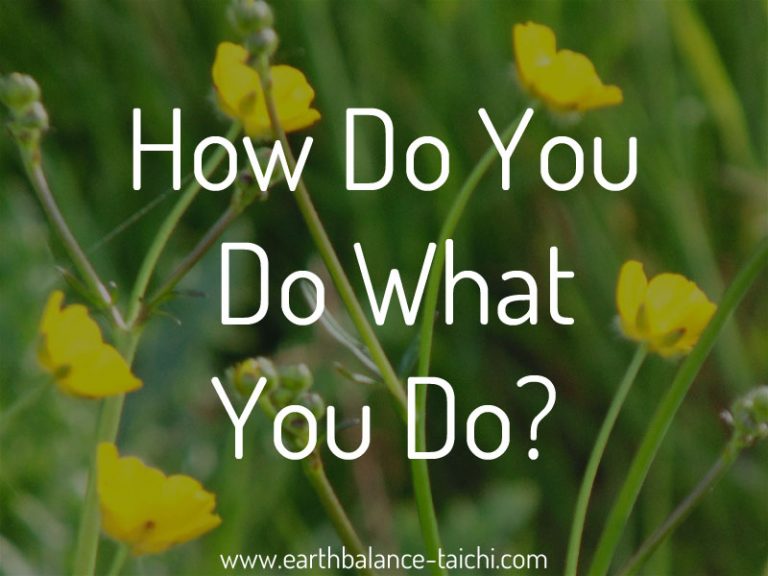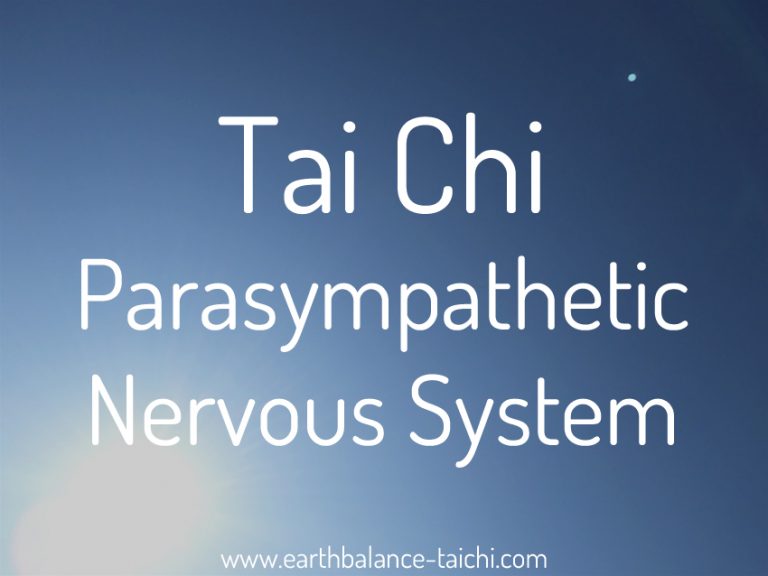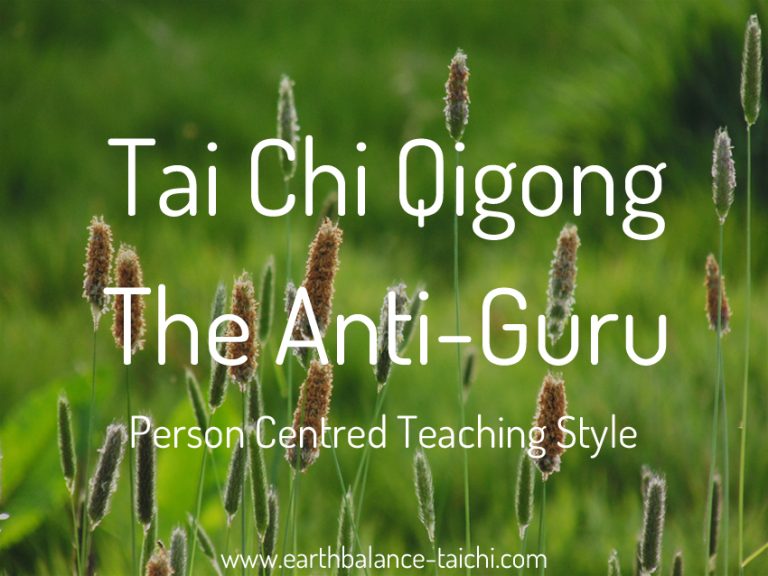What is your Goal?

What is your Goal?
What is your goal? In your Tai Chi, Qigong and meditation Training?
What is your Goal? - Being your natural self
Maybe it's easiest to start with my goal, or rather my journey. I am striving to be myself, it is as simple as that. So my goal in my Tai Chi, Qigong and meditation training, practice and play is to travel the journey to be the real me. And when I turn the idea on its head, it is actually Tai Chi, Qigong and meditation that give me the space and shows me who the real me is, and how to live more as my natural self.
For me, my baseline is different from the average person, for those who want to read more on that here's my personal bio. Each day is different and brings different challenges. I follow the ebb and flow of the day, as kindly as I can. I balance teaching, running a business and my personal life with movement, stillness, creativity and rest. This for me at this moment is how I live as my natural self.
Some (most) days I want to do more Tai Chi or Qigong practice than I am physically able to do. In these moments I take myself back to my original goal in my Tai Chi, Qigong and meditation training; 'I am striving to be me'. What can I do today that is the kindest expression of the natural me? The answer today, is that I look after my health and wellbeing as well I can. It will take me a much longer journey to progress and 'achieve' in my Tai Chi and Qigong training, longer than my 'ego brain' would like. Though, I like the journey on the slow boat, I get to see the scenery and I always do love a good landscape.
Every day we are either growing stronger, growing weaker or staying in neutral. Choose your day kindly.
What is your Goal? - How much Chen Tai Chi training should you do?
When somebody shares their Chen Tai Chi training programme with you, should you mould yourself into their image? Whether that be your teacher, a fellow student or from someone online. My answer as both a teacher and a student is no.
Traditionally Chen Tai Chi students must commit to daily practice to progress. Chen Xiaoxing is quoted as saying "for the average employee working 8 hours a day, it should not be insurmountable to find two hours a day for Taiji practice" (The Essence of Taijiquan, David Gaffney & Davidine Siaw-Voon Sim). Is this achievable for everyone? No. Is that what is necessary to become an accomplished internal martial artist. Yes and much more.
The fact is the majority of us will not become Tai Chi athletes, that is only a tiny percentage of people globally. Your expectations of how far you will progress in your Chen Tai Chi training, must match the reality of your training. If your goal is to develop to 'master' level, then you must have the capacity and ability to train traditionally within the Chen framework, daily over a lifespan. If you do not have the baseline to do that, then your expectation needs to be lower. Becoming accomplished takes a very very long time, a lot of dedication and sacrifice.
It's important to encourage and celebrate students who are committed to goals and life long practice.
So where is the middle ground? Outside of your expectations and what you feel you should be doing. Consider that your daily routine, your ability, your capacity, your health, your wellbeing, your baseline, your environment and your life is unique. Can a single parent with two children find two hours per day to train Tai Chi? Can a person who works three jobs to make ends meet find two hours per day to train? Can someone with chronic fatigue manage to train for two hours per day? Can someone who works 60+ hours a week find two hours to train per day? Can someone who is care giving to an elderly relative in their spare time find two hours per day to train? The answer is no. Does this mean these people cannot train Chen Tai Chi because they are unable to commit to daily practice? No.
It is important to encourage and celebrate students who are enjoy the experience and journey.
I'll share more about my experience as a Tai Chi student to give context to this discussion. I am a traditional in my approach and committed to my personal Chen Tai Chi training, however my training does not meet that standard. My baseline is unique and I often want to train more than my physical structure is able to. I live with chronic pain, chronic fatigue, chronic muscular contraction, frequent unpredictable soft tissue injuries and joints that subluxate. My physical capacity is much more limited than my mental capacity. This means my daily routine has to be fluid and responsive to my health baseline. Some days I train an hour per day, some days less, some days much more, some days no training, some days I only train other mobility and rehab exercises and yoga.
If I go over my capacity, then I injure easily or I hit a fatigue wall and end up in immobile, in more pain and in bed. Which means my capacity to train the next day and the days after that are in question. I don't want to crash into my baseline, I want to be able to exercise every day as my body needs that for pain management. The flip side is that if I stay so far under my training boundary that I am hardly exercising, I also find consequences for days to come. It's a careful dance, which requires self awareness and considered self management. Beside all that, don't follow my image, carve out your own pattern.
What is your baseline? Can you find ten minutes a day, or one hour twice a week, or be responsive to the ebb and flow of life? I want every student who loves Tai Chi and Qigong to be able to train in their own expression of the art. The art of pacing gives you flexibility to learn where your boundaries are, to avoid the boom and bust cycle. You can create your own pattern of training according to your needs. Through trial and error, you can get the most out of your Tai Chi training. Everyone's goal or journey is different. In my opinion that is the beauty of training Tai Chi, Qigong and meditation, as it brings together people from all walks of life, of all ages, all health ranges and reasons for joining. We can all train and celebrate our love of the Classical Chinese arts, with kindness, grace and non-judgement.
What is your Goal? - My students dated 2014
My 90 year old student's goal is fall prevention, mobility and company. He is alone except for his carers, and I love his company, so we chat about life over the movements. He jokes about dropping down dead during his lesson, and I always say that doesn't look good for business. I cherish those moments. His needs are far different from my intermediate students who train twice or more a week, with great effort and diligence. The goal of my student who lives with Parkinson's disease is for a greater quality of life from physical balance to motor control, and he practices twice a day everyday, he too enjoys the human contact and support. It's not always about the training. Some of my students are in recovery from brain injury, heart failure, cancer or a bad fall. Some live with invisible illnesses like fibromyalgia and chronic fatigue, and cannot manage the whole class. Some of my students have said they love the social aspect and relaxed nature of the classes, they laugh and say it probably doesn't matter what they are learning in class, they simply do and enjoy. A few students are as nerdy as me and love the complexity of the Tai Chi form, and ask me really good questions. Many students come to class as a way to manage SAD, depression and anxiety. Many students simply come and go.
My Tai Chi and Qigong community welcomes everyone, as we train, we expand and grow ourselves inside and out. We work towards a calm mind, open heart and resilient bodies. As an instructor I don't need to know your goal, just join us in doing and enjoying. I am however more than happy to share mine and hope some of you find common ground in this article.
It is known that with one hour a week of training, that you cannot expect great benefit from your practice. This is correct, Tai Chi and Qigong are not quick fixes for health and wellbeing, it takes effort, time, accuracy, awareness and diligence to reach considerable benefit. This aspect is often missed when talking about Tai Chi and Qigong for health. That said, I believe there can always be balance, between your life, your personal actions and the benefits. Some movement or some meditation however little is better than none. I guess it again depends on your goal and needs of that very moment in time, nothing is finite. You have the freedom to be naturally you.
Whether training or playing Tai Chi and Qigong one hour a week, or several, it doesn't really matter as all goals and journeys are welcome. There is room for us all. One quote that sticks in my mind from Erica Cooke is "I am not interested in competing with anyone, I hope we all make it". I can extend this to not competing with myself, not comparing myself to anyone and not judging anyone on their journey. From this, I am naturally me.
